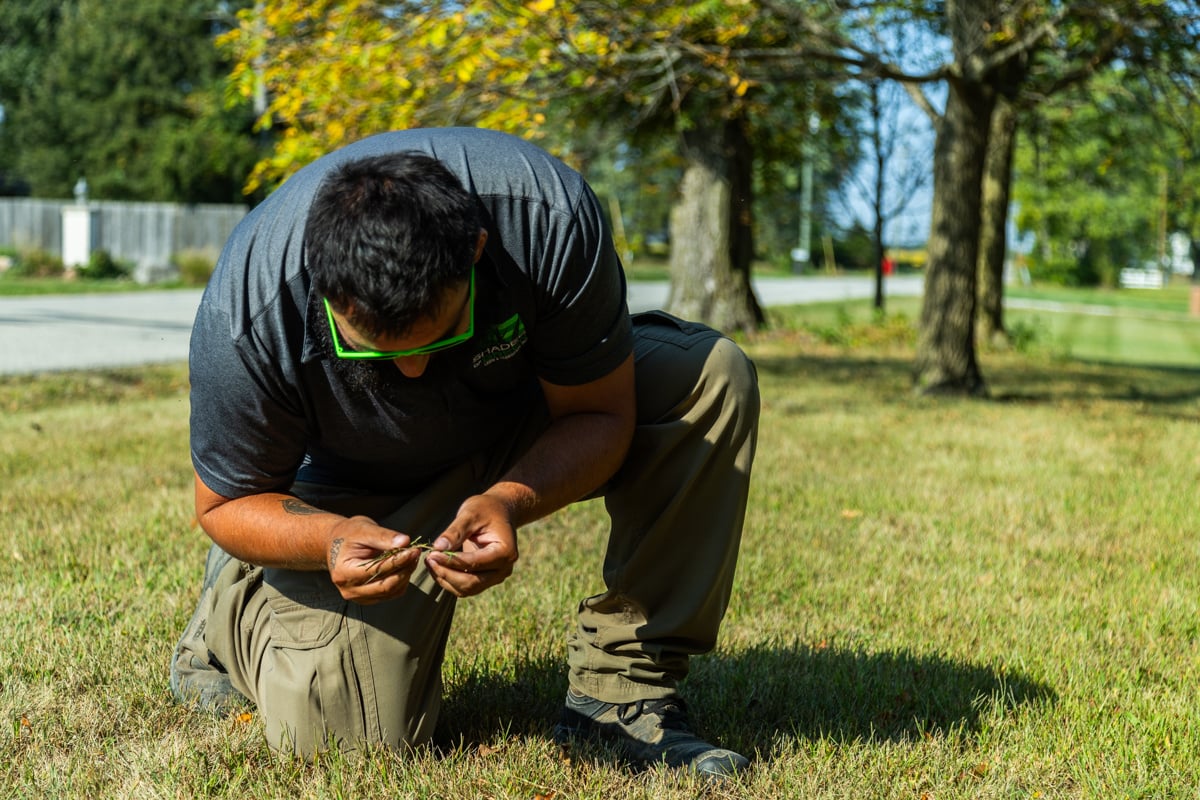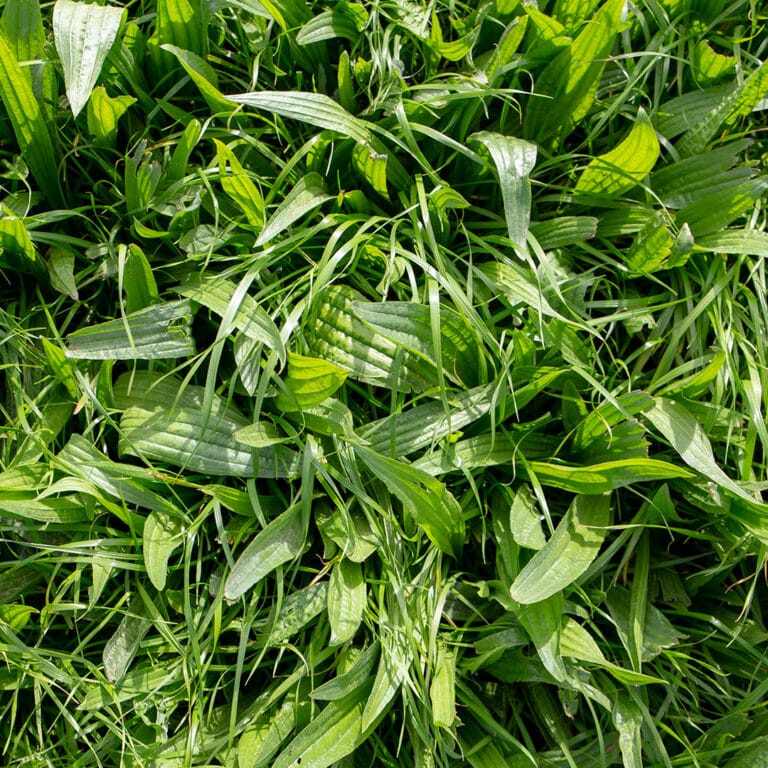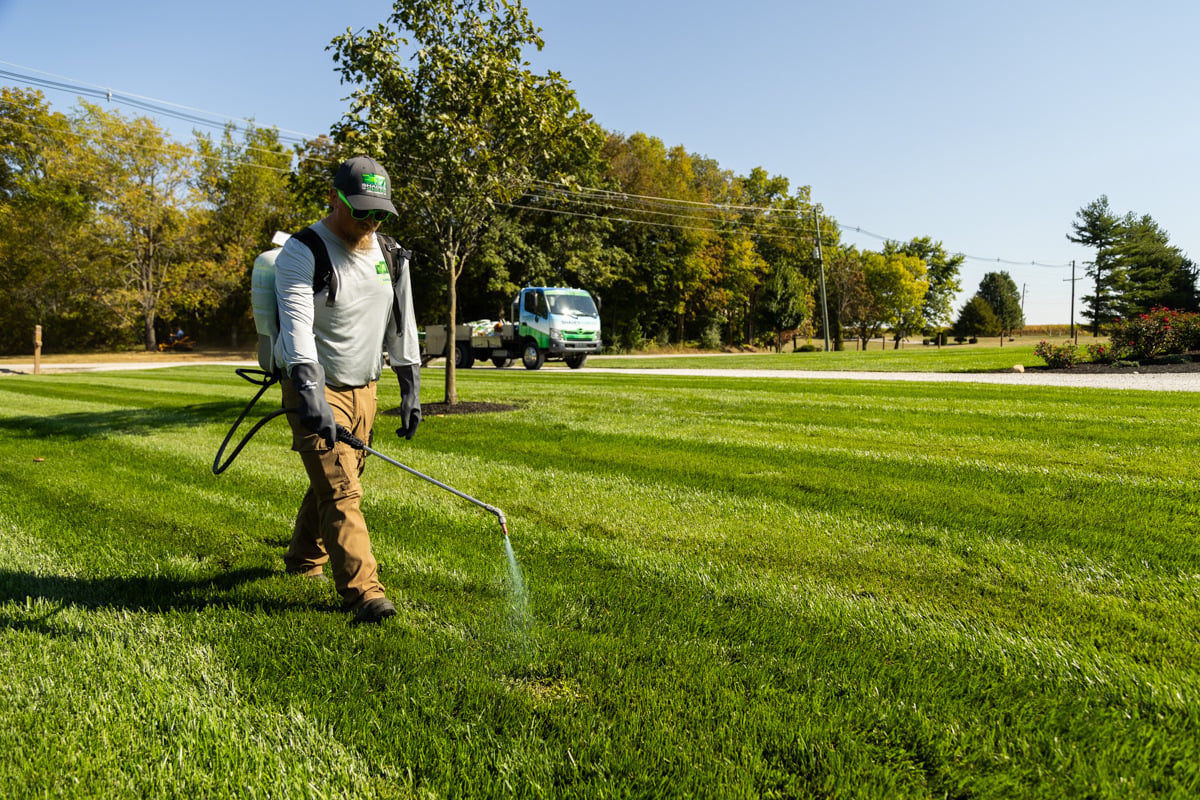

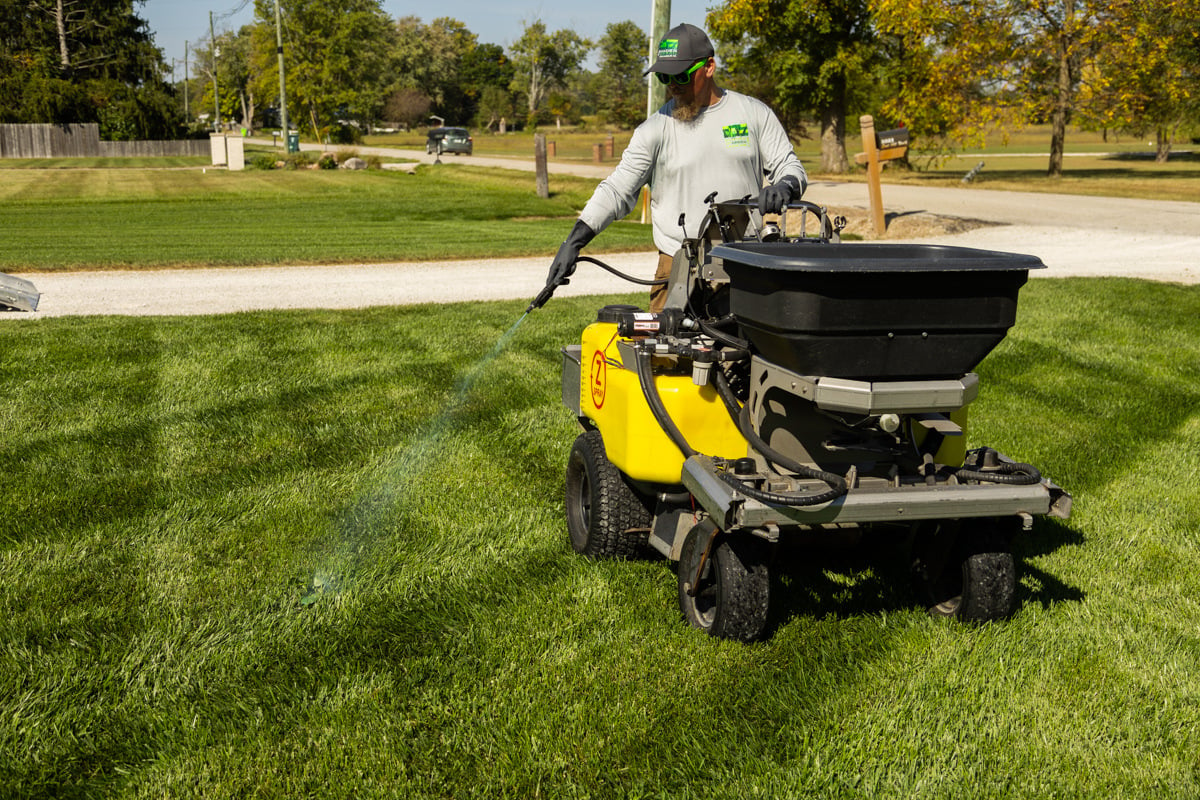
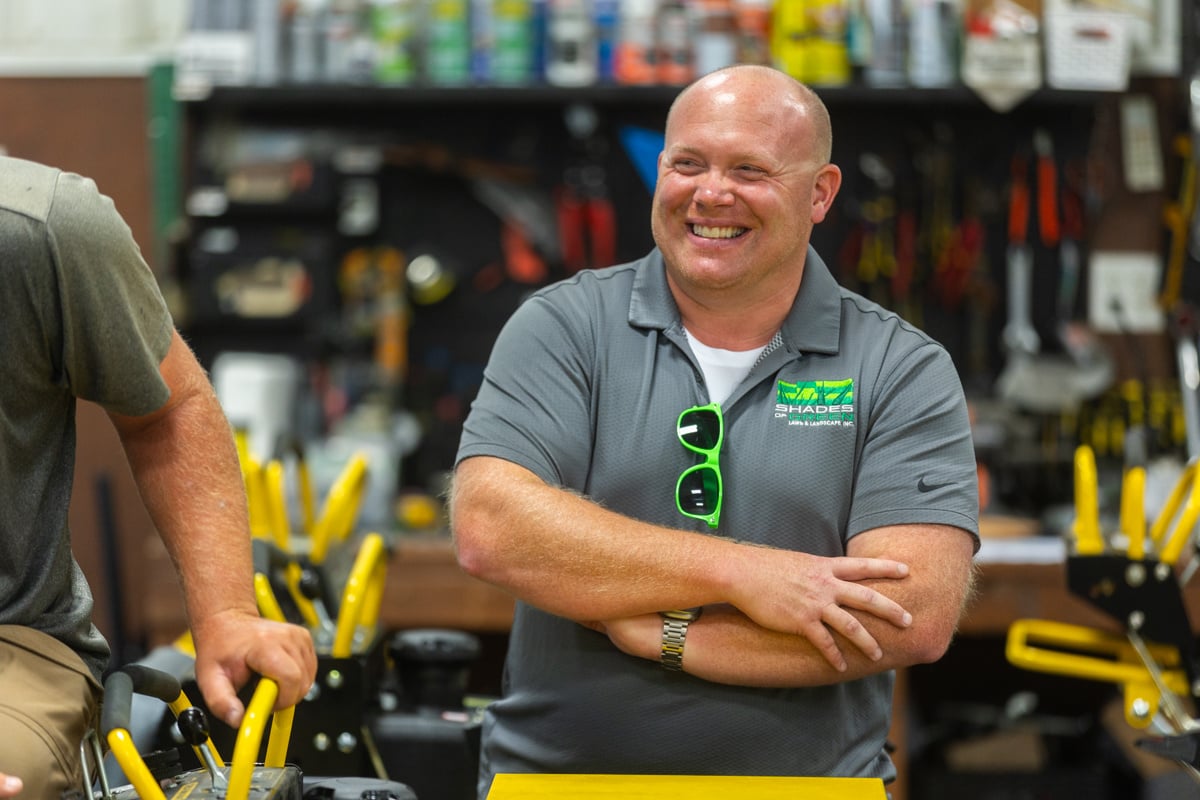
Ever step outside, look at your lawn, and think, “Wait, I don’t remember planting that”? If your yard is suddenly filled with low-growing, wiry-looking green invaders, you’ve probably met the summer lawn villain known as crabgrass. And let us tell you: it doesn’t care about your weekend plans, your carefully watered Kentucky bluegrass, or your dreams of the perfect lawn party.
So, what can you do for crabgrass control in Indiana? The key lies in prevention rather than treatment after the weed has sprouted and spread.
Let’s talk about what crabgrass is, how to spot it, why it keeps coming back and, most importantly, how to get rid of crabgrass in Indiana.
First, let’s get to know the enemy. There are two main types you’ll likely spot in Indiana:


Both types of crabgrass love warm weather, start germinating around April, and keep popping up through August. They grow low and wide, especially in open, sunny spaces like next to sidewalks, driveways, or those thin spots in your lawn where grass takes a vacation.
The key identifier? Their funky seed heads – kind of like tiny green forks with 3-5 fingers, and their bad habit of spreading fast. One single plant of crabgrass can produce 150,000 seeds per year. Yes. You read that right.
We know, we know. You’ve probably tried pulling crabgrass by hand while giving it the evil eye. But unless you got to it before it set seed (and got every little piece of root), it’s basically like playing whack-a-mole.
So here’s what actually works:
The best defense against crabgrass is a healthy lawn that doesn’t leave room for weeds to move in. That means:
Taller grass shades the soil, making it harder for crabgrass seeds to sprout.
Deep and infrequent watering helps your turf thrive without making crabgrass feel too welcome.
A well-fed lawn grows thick and strong, which keeps weeds out.
Especially those sunny, trampled spots where crabgrass likes to crash the party.
This is your secret weapon. Pre-emergent products work by preventing crabgrass seeds from sprouting in the first place. But timing is everything – you’ve got to apply them before the seeds germinate. In Indiana, that usually means sometime in the early spring (think soil temps around 55 degrees). Be careful with your timing, though, as pre-emergent doesn’t discriminate - it will also prevent desirable grass seed from germinating.
Didn’t catch it in time? You’ll need to go with a post-emergent product. But here’s the thing: the size of the crabgrass matters. Smaller crabgrass (in the 1-5 leaf stage) is much easier to take out than larger, tillered plants. Big crabgrass might need two rounds of treatment.
And do not rely on post-emergent applications alone. They don’t prevent new seeds from germinating, so if you skip the pre-emergent part, new seedlings will continue to pop up faster than you can say “not again”.
We love a good DIY moment as much as the next person. But with crabgrass? It’s tricky. Most of the time, folks at home miss the narrow timing window, choose the wrong product, or don’t apply it correctly. And unfortunately, that just gives crabgrass more chances to spread. The truth is, crabgrass control in Indiana takes a combination of perfect timing, product knowledge, and lawn care expertise. Many homeowners frequently confuse crabgrass with a variety of grass types that grow here in Indiana. And that’s where partnering with a pro can make all the difference.
Crabgrass is stubborn. So at Shades of Green, we take a proactive, science-backed approach to crabgrass treatment and overall lawn health. We use late fall-applied pre-emergent products as part of our crabgrass control program. This ensures that your lawn has what it needs to fight crabgrass as soon as the spring warm-up hits.
If you’ve been fighting crabgrass year after year, don’t beat yourself up. It is persistent, sneaky, and loves to hang out where it is not invited. But with the right plan, the right timing, and a little help from the pros, you can reclaim your lawn.
At Shades of Green, we take every weed personally. Our unique approach – like applying pre-emergent in the late fall so it’s already working before spring even hits – sets us apart from the typical spray-and-pray crowd. We know Indiana lawns, and we would love to help you kick crabgrass to the curb once and for all.
Ready to start winning the battle against crabgrass with Shades of Green? Get started by filling out our contact form.
Image Sources: large crabgrass, smooth crabgrass
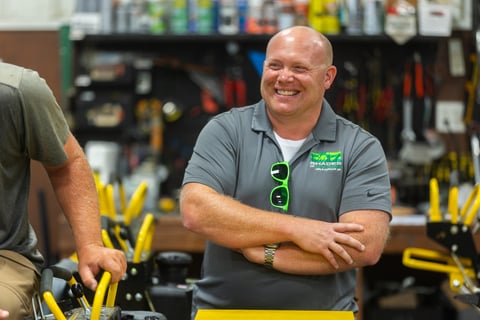
Cory is the heart and soul of Shades of Green. His dedication to doing right for our customers has been the driving force behind the company's success. With a degree in Turf Science from Purdue University, Cory continually strives to craft the best treatment plans using the latest technologies and innovative products, ensuring top-notch results for every client.


